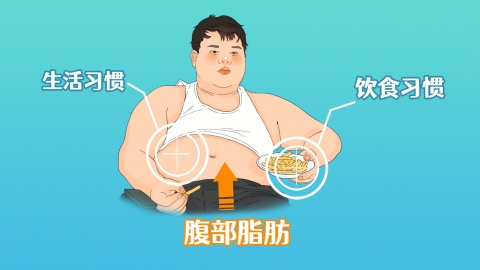How to reduce belly fat
Generally, abdominal fat may be related to factors such as unhealthy eating habits, lack of exercise, medication side effects, endocrine disorders, and hypothyroidism. Patients can treat these issues by establishing a healthy and balanced diet, increasing physical activity, changing medications, or undergoing drug therapy. It is recommended that patients promptly visit a hospital for examination and receive symptomatic treatment under a doctor's guidance. A detailed analysis is as follows:

1. Unhealthy eating habits: Unreasonable dietary habits can lead to excess energy intake, which gets converted into fat stored in the abdominal area. Adjusting one's diet and reducing the consumption of high-calorie and high-fat foods can lower the risk of fat accumulation. A healthy and balanced diet should be established, tailored to one's height, weight, and activity level, with daily caloric needs calculated and appropriately distributed across three meals.
2. Lack of exercise: Insufficient physical activity decreases the body's energy expenditure, causing ingested calories to remain unused and subsequently be stored as fat around the waist and abdomen. Increasing aerobic exercise and strength training can boost the metabolic rate—for example, activities such as jogging, swimming, and weightlifting.
3. Medication side effects: Certain medications, such as glucocorticoids and antidepressants, may cause weight gain and abdominal fat accumulation with long-term use. Weight changes should be closely monitored while taking these medications, and dosages should be adjusted or alternative medications considered under a doctor's supervision.
4. Endocrine disorders: Endocrine imbalances can lead to abnormal metabolism and a reduced rate of fat burning, resulting in fat accumulation in the lower abdomen. Symptoms may include fatigue, weight gain, dry skin, and constipation. Patients should follow medical advice to use medications such as Wuchiw Fengwan (Silkie Chicken and Immortal Pill), Xiaoyao Wan (Free and Easy Wanderer Pills), and Spironolactone Tablets to aid recovery.
5. Hypothyroidism: Hypothyroidism refers to insufficient thyroid hormone production by the thyroid gland, which affects the metabolic rate, making it difficult to reduce abdominal fat and leading to fat accumulation in the lower abdomen. Patients are advised to take medications such as Thiamazole Tablets, Propylthiouracil Tablets, and Carbimazole Tablets under a doctor's guidance to alleviate their condition.
It should be noted that weight loss should be approached with patience and persistence, avoiding unhealthy methods in pursuit of rapid results.









